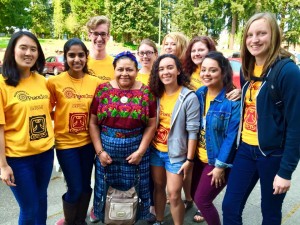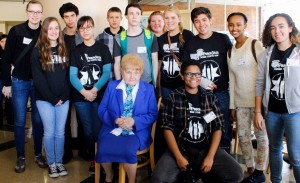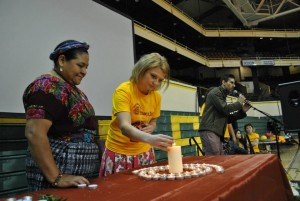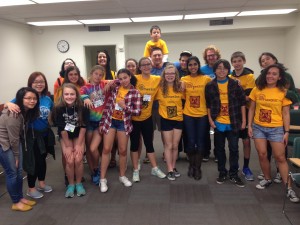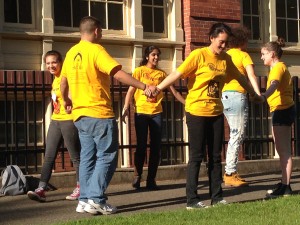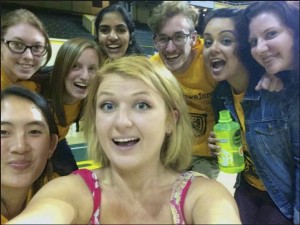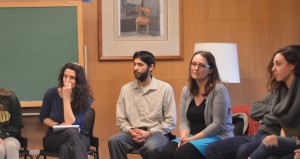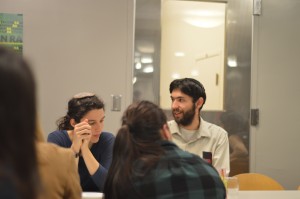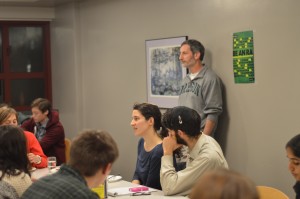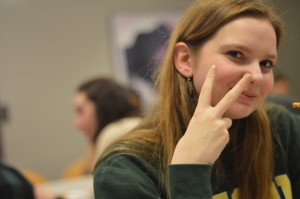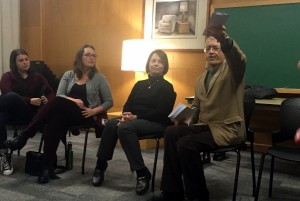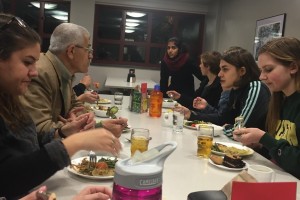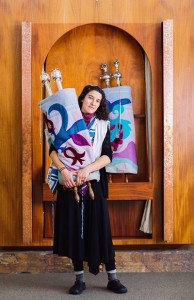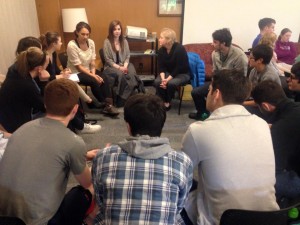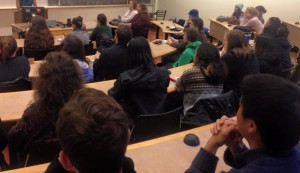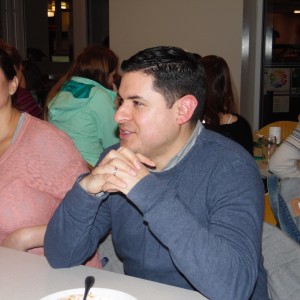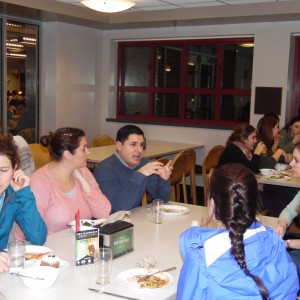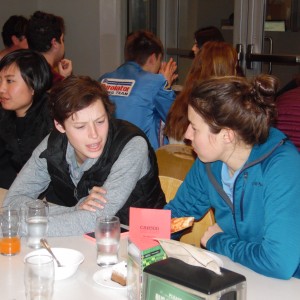University of Oregon Police Department’s chief of police, Carolyn McDermed, served as a police officer for about 30 years. She originally wanted to be a veterinarian and got a degree in animal tech. However, she changed her mind when she followed through with a “dare” from her ex-husband to join the police. She as surprised when she was accepted and subsequently earned a job. She grew to love working as an officer, first in Sand Diego and then here in Eugene.
One of the first topics of discussion was about the realities of being a woman on the force, and subsequently a chief. Chief McDermed was forthright in saying that she was treated differently, and she was not seen as an “equal” among male peers and partners. She shared a few stories of early partners who left her in very vulnerable situations on the job, and how they had to deal with those in a time when talking openly about sexism could get you in trouble.
There was also a discussion of racial profiling, both with regards to the UO campus, but also questions about how this topic is playing out in departments in response to the high-profile shootings and protests in Ferguson and Baltimore (among other places). Chief McDermed is a trainer for the State of Oregon in racial profiling, and how to recognize it and avoid it. She said that it’s rare for someone to see a person of color and say “That person is black. I was to shoot them.’ Instead, we need to recognize the unconscious ways that racism operates in our society. Only then can we address the issues raised by these recent and tragic events.
This led to a discussion of the important of treating people with respect and trying to take individual situations at face value. At times, police are constrained by the law, but in some situations, they can give leeway for people in difficult situations. She emphasized repeatedly that people should be treated respectfully, and anybosy, but espcially the police, should resist making quick judgement about people. It is important to recognize power and how it effects different people, both those who have it, and those who don’t.
As chief, she felt that the police department was supposed to value the different cultures on campus and where people are from. She also felt that suggestions and open-mindedness from the students were good ways to better the police department so everyone could feel safer. She seemed very excited about the prospect of having more of her department visit with student groups, and we made some connections with her to hopefully bring them in as guests. Some of the challenges she faced were with her own officers. She wanted them to interact with the students, but also hold themselves accountable and to know their authority.
UPDATE:
On February 29, 2016, the UO announced on the police department’s page that Carolyn McDermed had retired. As the article says, “UOPD has evolved significantly in recent years, and Chief McDermed has played a significant role in managing that change.” One subject that was not covered in the talk with former Chrief McDermed was the controversy in her department about the late-night joke where the police officers had a list of people they didn’t like (bike-riders, the mayor, etc.). There were accusations of harassment and retaliation by the whistle-blower who made this public. Chief McDermed had been under fire for not having good management of her officers, and there is much speculation on her sudden retirement and the settlement with the plaintiff in the case.
